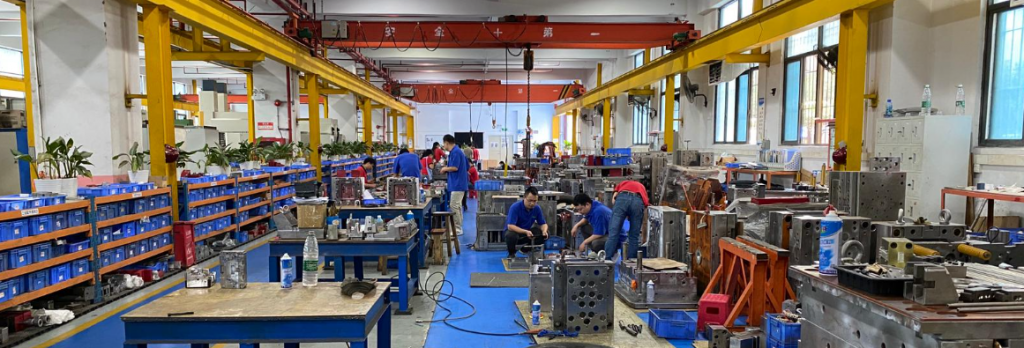Plastics are constructed from long-chain molecules, known as polymers. These polymers join together in various ways to form the different types of plastics available on the market. One group of plastics is known as thermosetting plastics. These become permanently rigid and fixed when heated in a curing process like plastic injection moulding. Liquid polymers are compressed into the required shape and cooled in the mould until they are solid. They are then cooled and released from the machine. The heat starts off a chemical reaction inside the plastic material that increases the cross-linking between polymer chains, curing the plastic and setting it irreversibly in its new shape.
The thermosetting process starts with the ‘resole’ stage, where the polymer is in an initial insoluble and fusible state, ready to be turned into the final product via plastic injection moulding or similar. As it moves to the second stage, the polymer becomes partly soluble when heat is applied to it, which sets off a chemical reaction. This stage sees the increased temperature and applied pressure promote cross-linking of the long-chain molecules contained within the plastic.
Finally, the molten thermosetting plastic polymer forms a permanent and solid three-dimensional structure. In plastic injection moulding, this is done via a specially shaped mould. The liquid cools and hardens into the desired shape before being ejected from the machine, ready for quality testing. By this stage, the component is no longer able to be thermally remoulded.
Thermosetting Plastic’s Properties and Benefits
Thermoset plastics differ from thermoplastics, despite some similarities in the two names, due to the fact that they become permanently set in their new physical and compound shape after being exposed to heat. They will not melt back into a liquid anymore, nor can they be recycled. These properties make thermoset plastics incredibly robust. They are also highly resistant to heat, chemicals and mechanical strength. Their strength also renders them extremely suitable for applications that require greater levels of durability and resilience.
Examples of thermosetting plastics and thermoplastics
Here are some commonly found thermosetting plastics polymers, all prized for their rigid, durable finish and excellent resistance to heat, chemicals, pressure and more.
Most polyurethanes are thermosetting plastics. They are abrasion-resistant, flexible and tough offering excellent protection against grease and oil. Polyurethane plastics are found in a massive range of everyday products, including sports footwear soles, automotive parts, computer components, goggles and other PPE, gaskets, bearings and mobile phone cases.
Fibreglass is a fibre-reinforced polymer composite made from glass fibres mixed with a resin matrix to form a tough, rigid plastic-based material. It is a strong, lightweight material with many uses across different sectors. Fibreglass is used to make swimming pools and spas, doors, water-sports equipment, such as surfboards and boat hulls, and automotive parts. Its lightweight and attractive finish also makes fibreglass popular in home interior design and electronic applications, e.g. circuit boards.
Melamine resin is a nitrogen-rich, organic thermoset plastic that is used to manufacture kitchen utensils, such as plates, cooking tools, trays and more. Once cured, melamine is flame resistant and extremely tough, making it ideal for the kitchen environment and virtually unbreakable. It can also be used to make children’s toys, picnic sets and other plastic houseware.
Vulcanised rubber, despite its name, is a thermoset plastic made from altered rubber in a process using heat and sulphur. It is also known as ebonite or hard rubber. It has an opaque finish and is typically manufactured in black or red. Vulcanised rubber is an ideal match for fountain pens, imitation jet jewellery, pipe stems and combs.
Epoxy resin is frequently used to coat floors and surfaces for durability and slip resistance. It’s a strong type of plastic that hardens through a special curing process where polymers link together tightly. Epoxy is popular in making strong structures for buildings, heavy industry, airplanes, and businesses.





